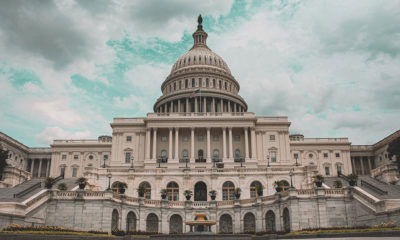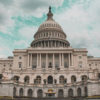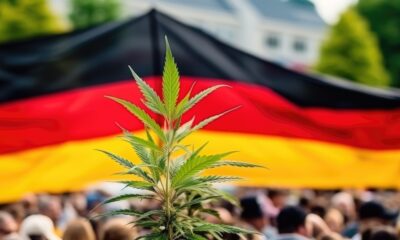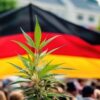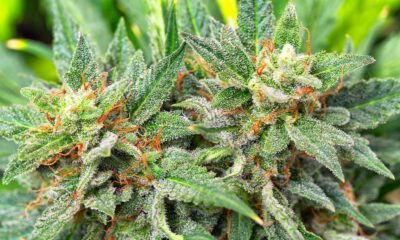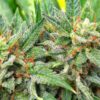
Joint Opinions
Nation’s Capital is the Most Pot-Friendly Place in America
When Congress approved a federal spending bill at the end of 2014 prohibiting the District of Columbia from spending funds to enact further legislation to legalize marijuana, they had no idea that their underhanded tactics were actually transforming the nation’s capital into the most pot-friendly city in America.
Initiative 71, which legalized the cultivation and possession of marijuana in Washington, D.C., has nearly survived its 30-day congressional review and is set to become a full-fledge law today. This has some members of the D.C. City Council concerned that without a set of rules in place to guide officials through the grey areas of the law, the city will erupt in “chaos” and become a veritable thuderdome for high society.
Now that cannabis is officially legal in the District, individuals and tourists will be able to walk the streets with enough herb in their pocket to nearly get both chambers of Congress and the President super stoned. In addition, residents will be allowed cultivate a cannabis garden in their backyard and even give it away to friends and family without running the risk of jail or even a fine.
The supposed chaos, according to a recent article in The Washington Post, will ensue as entrepreneurs sneak through the fine print of the law to find clever ways to capitalize on cannabis even though there is no legal framework for a market to function.
The D.C. Council, which was threatened with prison if they proceeded with a hearing to establish a taxed and regulated cannabis industry, believes that in order for legal weed to be successful there needs to be a definitive set of rules put into place to act as a seeing eye dog out of the black market.
“Where can it be bought? Sold? Eaten? Smoked? We’re not going to have answers to any of that, and that makes me very concerned,” D.C. Council member David Grosso explained to the Post. “And as the consequences play out in the nation’s capital, he said, it could set back the entire movement: “Let’s be responsible about how we do this so we don’t have a negative image coming out.”
For cannabis connoisseurs who chose not to cultivate their own smoke, they will be forced to turn to the hospitality of others or the borderline black market to obtain cannabis. In fact, one of the key issues concerning District officials are is that there is already significant evidence to indicate that industrious minds have found a way to cheat the system and intend to operate a slightly different version of a cannabis industry once the new law goes into effect.
In order to generate profits on D.C.’s seemingly non-existent cannabis industry, all an entrepreneur has to do is find a clever method for selling marijuana to the public, like operating a cannabis club. There is nothing written in the language of Initiative 71 that prevents the existence of cannabis clubs or other organizations that provide free weed in exchange for membership fees or donations.
“The District will be unique because you can’t technically sell cannabis directly,” Tiffany Bowden, an organizer for the expo, told the Post. “All that means is the traditional dispensary model as we know it will not happen. But that doesn’t mean the cannabis industry is going to be asleep. It’s actually going to be thriving in Washington.”
The ambiguous rules for legal marijuana in the District are predicted to cause an uprising of cannabis clubs that will cater to various angles of the pot culture.
“There is a whole blueprint for this that is totally a real possibility for the District,” said Malik Burnett, with the D.C. chapter of the Drug Policy Alliance, who adds this anticipated “not-for-profit” business model is highly successful in other countries.
So, while there will be no signs of retail pot shops in the District, like those seen in Colorado and Washington, experts predict there will be an insurgence of small businesses skirting the lines of the law to profit from pot. For example, it would not be against the rules for a masseuse to offer services, but include “complimentary” marijuana in the deal. The idea is that if a club gives away $50 worth of weed but charges someone $500 to join, there is no possible way for law enforcement to prove that marijuana is being sold. After all, the casual exchange of weed is all part of the deal with regard to Initiative 71.
This is the reason the nation’s capital is set to become the most liberal haven for marijuana enthusiasts in the country, because without regulations to keep this purgatorial industry from coming unleashed, it will more than likely become the one place in America that caters to stoner indulgence without requiring a key to a chastity belt… at least for the next year.
Perhaps once Congress witnesses the pot playground they have essentially created by preventing the District from exploring a regulatory system, they will be less likely to attach a new rider to the 2017 fiscal budget. Until then, however, it will be interesting to watch this mild-mannered monster run wild once it is finally turned loose into the city streets.
Will you smoke in D.C.? Share your thoughts in the comments.









